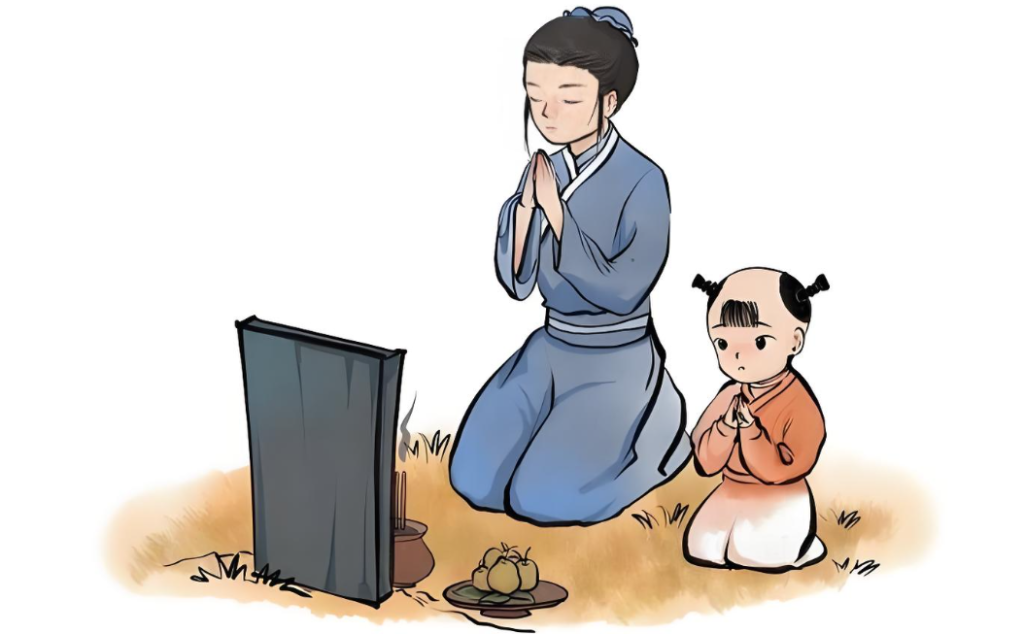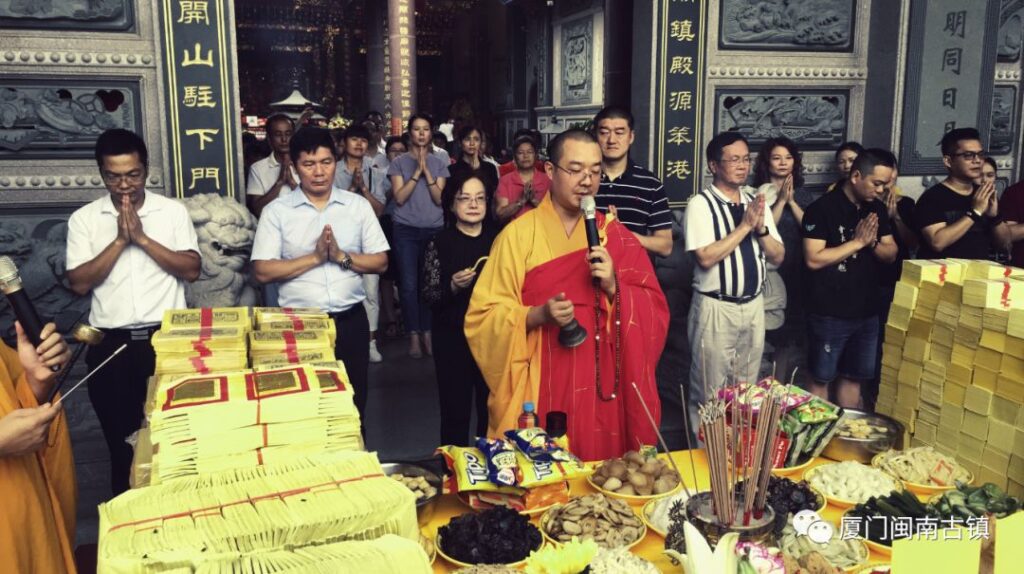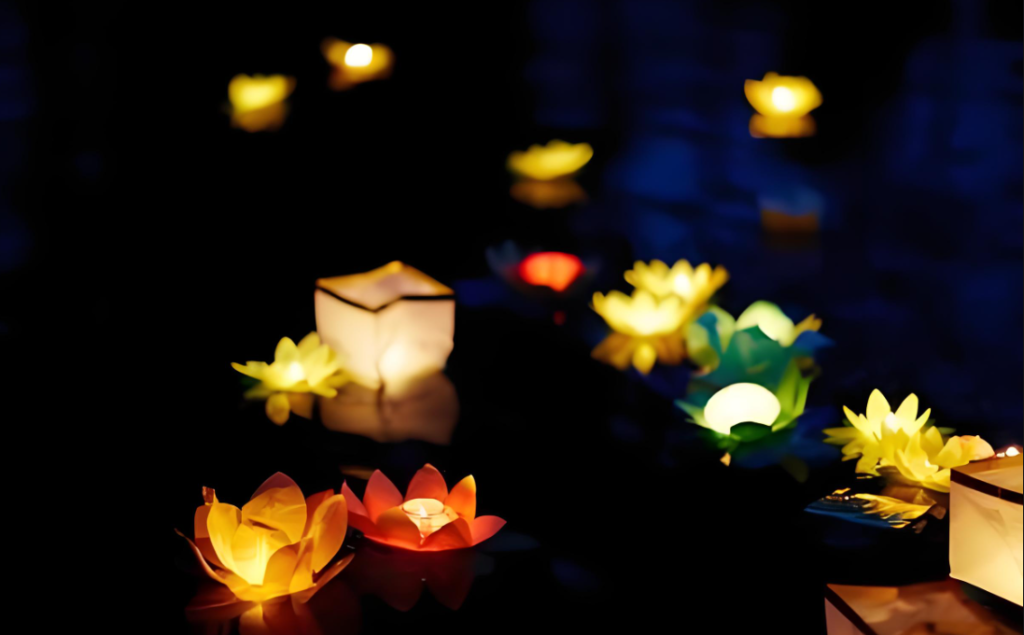Everything You Need To Know About Hungry Ghost Festival
- Chinese Culture
The Hungry Ghost Festival, a traditional Chinese festival with Taoist origins, is celebrated on the 15th day of the seventh lunar month according to the Chinese lunar calendar, though in some regions, it is observed on the 14th. The festival spans the entire seventh lunar month, highlighting the significance of this period for various rituals and offerings. It is also known as the Ghost Festival in the south.
The Yulanpen Festival, a Buddhist counterpart to the Hungry Ghost Festival, emphasizes ancestor worship and traditional practices associated with honoring spirits. Observed during the seventh month of the lunar calendar, it showcases community values and collective identity.
On the Hungry Ghost Festival, people offer food and burn paper money to honor and appease restless spirits. Similar to Tomb Sweeping Day, families visit graves to pay respects to their ancestors. Historically, local officials would organize ceremonies to honor fallen soldiers, burning large amounts of paper money during the festival.
What is Hungry Chost Festivals?

The Hungry Ghost Festival, also known as the Ghost Month, is a traditional Chinese festival during which it is believed that the spirits of the deceased return to the living world. This festival, also known as the festival of ghosts, is rich in cultural significance and folklore, highlighting practices such as positioning slippers to invite spectral entities into one’s home. It is observed in many East Asian communities, including those in China, Taiwan, Hong Kong, Malaysia, Singapore, and parts of Thailand.
The Zhongyuan Festival, celebrated during the seventh month of the lunar calendar, plays a significant role in fostering community unity and veneration for ancestors, rooted in Taoist and Buddhist traditions.
The Hungry Ghost Festival typically lasts for seven days and is marked by traditions related to both recently deceased and long-deceased spirits. Those who have died within the past three years are considered “new” dead, while those who died more than three years ago are considered “old” dead.
On this day when the dead go back, whether rich or poor, they must make a good meal to honor the dead, also called “sending the dead”.
The origin of the Hungry Ghosts Festival

The origin of the Hungry Ghost Festival is linked to ancient China’s land ancestor worship. With the rise of Taoism, this tradition incorporated the three official gods of heaven, earth, and water.
Tianguan’s birthday on the 15th day of the first lunar month is celebrated as the Shangyuan Festival, focusing on blessings.
The Earth Official’s birthday on July 15, known as the Hungry Ghost Festival, centers on absolving sins.
The Water Official’s birthday on October 15, called the Xiayuan Festival, is dedicated to relieving human suffering.
In ancient times, according to the lunar calendar on the first day of July “open the gate of death”, July 30 “close the gate of death”, in this month, all the souls of the non-sacrifice all out of the grave, to the world wandering around looking for something to eat. Therefore, various places have held the “Pudu” ceremony in this month to “cross over the lonely soul”. The souls released during this month are considered wandering souls seeking offerings and rituals to appease them.
The clothing styles of the Qin Dynasty were mainly designed for ease of movement and work. Common garments included the deep garment and short brown garment. The deep garment was a type of attire where the upper garment and lower skirt were connected, facilitating wear and movement. The short brown garment, on the other hand, was a shorter upper garment suitable for laborers. Clothing styles during the Qin Dynasty were relatively loose to accommodate various work requirements.
The custom of Hungry Ghost Festival
The Hungry Ghosts Festival, deeply embedded in Chinese culture, involves a range of customs, including food offerings, designed to honor and appease restless spirits. Here are the key practices:
Central Plains Pudu

Folklore says that when people die, they become ghosts and wander between heaven and earth.
Central Plains Pudu is performed to honor wandering ghosts who do not have descendants to offer sacrifices, so that they can also feel the warmth of the human world, which is our traditional culture of “universal love” thought of a form of expression.
Between the 1st and 30th of the 7th lunar month, people will put out various offerings to offer sacrifices to these ghosts and pray for peace, good luck and good weather.
Worship one's ancestors
In the Song Dynasty, Taoist concepts and rituals were combined with Confucian ancestor worship, and July 15 became a major festival for ancestor worship and worship of the dead. Ancestor worship is the centerpiece of the festival, which runs through July.
Floating river lanterns

Floating river lanterns, also known as water lanterns, are used to guide lost and wandering spirits. The belief is that these lanterns help the spirits find their way back to the underworld, ensuring they do not remain in the realm of the living.
The lanterns are typically made from paper and wood, often crafted into intricate shapes. They usually contain a candle or a small light source to illuminate the lantern.
The floating of river lanterns is a visually striking and meaningful tradition within the Hungry Ghost Festival, embodying the festival’s themes of remembrance, respect, and the guidance of lost spirits.
Street burning clothes
This is a folk custom that has been preserved since the opening of Hong Kong. Once entering the seventh month of the lunar calendar, people will bring incense candles, gold and silver paper and some offerings such as tofu and white rice on the roadside to worship.
Chinese opera performances are also staged during the festival to entertain both the living and the spirits. The purpose of “burning street clothes” is to let those lonely souls who have no support have clothes to keep warm and food to wrap their stomachs.
Make eggplant cakes
The folk believe that nightcakes can become the dry food for the deceased ancestors to go to the Yelanpeng Society. Every Hungry Ghost Day, the old Nanjing family family to make eggplant cake, that is, fresh eggplant cut into shreds, and flour, fried in oil. In fact, the eggplant cake is now an ordinary but home-cooked dish, if you want to eat at any time can do a plate to solve the greedy oh.
Hungry Ghost Month
The seventh lunar month, according to the Chinese lunar calendar, known as Ghost Month, is a significant time in many Asian cultures, especially within the Chinese community. The most important day is the 15th, which marks the peak of the celebrations.
During Ghost Month, it is believed that the gates of the underworld open, allowing spirits to roam the earth. To ensure these spirits have a peaceful journey and do not bring misfortune, people engage in various rituals and customs to honor and appease them.
The first day of Hungry Ghost Month
According to legend, every year on July 1, the King of Hell ordered to open the gates of hell, so that those who suffer in hell all year round and are imprisoned ghosts can get out of hell, get a short wandering, and enjoy the blood of the world.
The last day of Hungry Ghost Month
The last day of the Lunar Ghost Festival, July 30, marks the King of Hell’s birthday and the closing of the gates of Hell. This day is filled with rituals to bid farewell to the spirits and ensure their safe return to the underworld.
What the Hungry Ghost Festival can't do?
Don't touch burnt paper, don't tread on ghost paper
Burning paper money is a traditional Chinese custom believed to console the souls of the deceased. This practice is common not only in China but also in other parts of Asia. Despite its ancient origins, it remains an important tradition representing respect and remembrance for the dead.
Burnt paper money should not be trampled or touched, as it is considered unlucky and disrespectful. Scientifically, stepping on burnt paper ash can raise dust, which may contaminate shoes and clothes and be inhaled, posing health risks.
Do not touch the sacrifice, do not eat the sacrifice
Sacrifice is a key ritual that expresses respect and gratitude toward gods and ancestors. Sacrificial offerings can include animals, plants, food, and drinks, such as chickens, ducks, pigs, fruits, and grains, which are placed on an altar during ceremonies.
These offerings are often shared among participants to show respect, share divine blessings, and avoid waste. However, some offerings, like those made for ghosts, are not consumed, as it is believed to provoke trouble and bad luck.
Don't touch the water, don't swim
During Ghost Month, folklore suggests that ghosts roam freely, and swimming in rivers is believed to attract them. River lights are placed to guide ghosts back to the underworld, and swimming at this time is thought to invite danger from these spirits.
From a rational perspective, these warnings are rooted in superstition. In reality, the cool autumn weather and significant temperature fluctuations can cause cramps and increase drowning risks, especially in rivers and reservoirs. Therefore, it’s wise to avoid swimming in such conditions.
Don't hanging wind chimes in the bedroom
Folklore suggests that wind chimes attract ghosts, but this is a superstition. Scientifically, wind chimes can produce noise that disrupts sleep and affects rest, especially for those sensitive to their environment, potentially causing sleep disorders.
Don't look in the mirror at night
Folklore suggests that look mirrors at night in Ghost Month can attract misfortune, but this is a superstition. Scientifically, low light can create illusions and make people see distorted shapes, leading to unnecessary fear.
More taboos in Ghost Month
Come Home Late at Night: Spirits are believed to be most active after dark.
Take Photos at Night: To avoid capturing wandering spirits.
Hanging Clothes Outside at Night: Spirits might attach themselves to the clothes.
Whistle or Sing: These sounds can attract spirits.
Talk About Ghosts: Discussing spirits can draw their attention.
Pick Up Coins or Objects on the Street: These might be offerings for spirits.
Disturb Offerings: Offerings are meant for spirits, and disturbing them can bring bad luck.
Have a haircut: Have a haircut during Hungry Ghost Festival can lead to “ghost shaving,” in which hair inexplicably falls out and forms alopecia areata.

